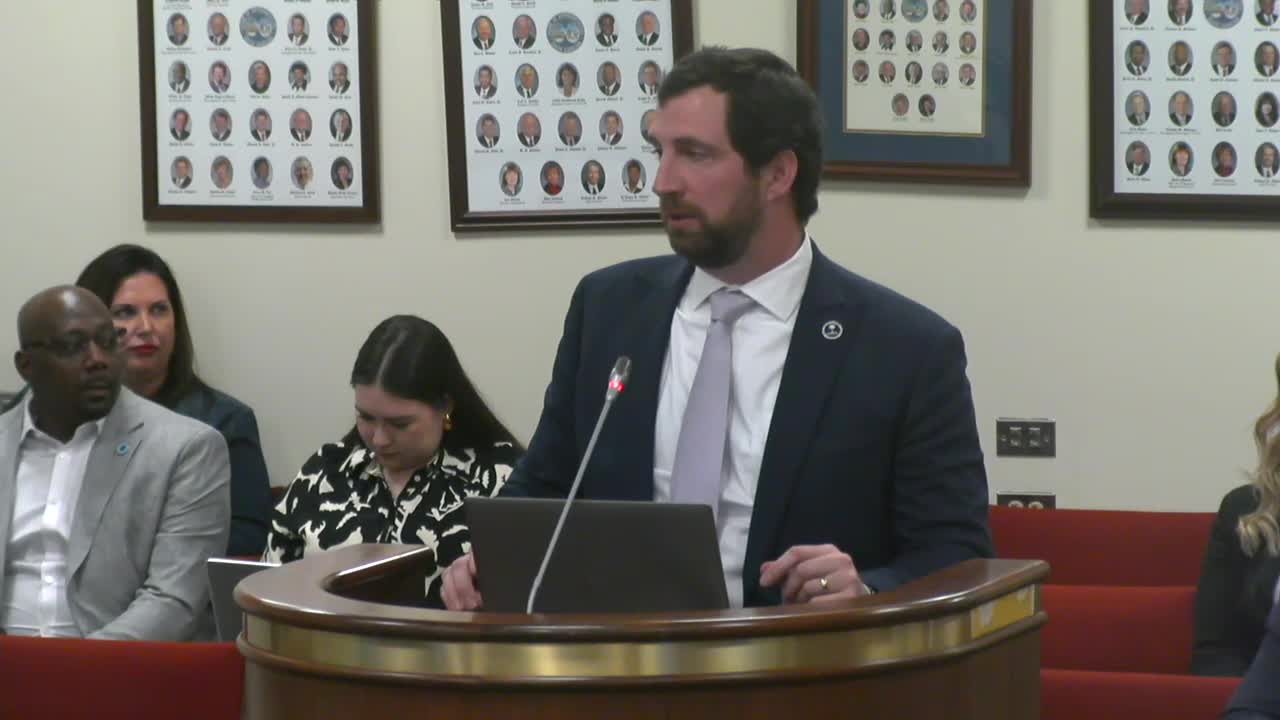State Education Leaders Address Third Graders' Retention Issues and Reading Program Enhancements
April 30, 2025 | 2025 Legislative Meetings, South Carolina
This article was created by AI summarizing key points discussed. AI makes mistakes, so for full details and context, please refer to the video of the full meeting. Please report any errors so we can fix them. Report an error »

In a recent meeting of the South Carolina House of Representatives, lawmakers gathered to address pressing educational concerns, particularly the potential impact of new reading legislation on third graders. The atmosphere was charged with urgency as representatives discussed the implications of a statute that could see thousands of students held back if they do not meet reading proficiency standards by June.
The discussion highlighted that approximately 16,238 third graders could be affected, representing a significant portion of the state's young learners. Lawmakers expressed their commitment to preparing for this potential wave of students facing retention. They emphasized the importance of summer reading camps and enhanced training for teachers in the "science of reading," a method designed to improve literacy skills among early learners.
One representative noted the emotional toll that retention could take on children, recalling past experiences with similar educational policies. The conversation underscored the necessity of community support and the role of local school boards in implementing these changes effectively. Lawmakers acknowledged that while state-level policies are crucial, the real work lies in tailoring solutions to meet the unique needs of each district.
As the meeting progressed, the focus shifted to the Department of Motor Vehicles (DMV), where the executive director, Kevin Shweto, shared insights into the challenges faced by the agency amid a growing population. He reported a 25% increase in residents without a corresponding rise in staff or budget, leading to high turnover rates and concerns about employee compensation. Shweto highlighted the dedication of his workforce, predominantly female and from diverse backgrounds, who manage a staggering number of transactions despite these challenges.
The discussions in the House of Representatives reflect a broader commitment to addressing educational and administrative challenges in South Carolina. As lawmakers prepare for the upcoming school year, the emphasis remains on ensuring that every child has the opportunity to succeed, while also recognizing the vital role of state agencies in supporting these efforts. The meeting concluded with a call for collaboration among educators, parents, and community leaders to foster an environment where students can thrive.
The discussion highlighted that approximately 16,238 third graders could be affected, representing a significant portion of the state's young learners. Lawmakers expressed their commitment to preparing for this potential wave of students facing retention. They emphasized the importance of summer reading camps and enhanced training for teachers in the "science of reading," a method designed to improve literacy skills among early learners.
One representative noted the emotional toll that retention could take on children, recalling past experiences with similar educational policies. The conversation underscored the necessity of community support and the role of local school boards in implementing these changes effectively. Lawmakers acknowledged that while state-level policies are crucial, the real work lies in tailoring solutions to meet the unique needs of each district.
As the meeting progressed, the focus shifted to the Department of Motor Vehicles (DMV), where the executive director, Kevin Shweto, shared insights into the challenges faced by the agency amid a growing population. He reported a 25% increase in residents without a corresponding rise in staff or budget, leading to high turnover rates and concerns about employee compensation. Shweto highlighted the dedication of his workforce, predominantly female and from diverse backgrounds, who manage a staggering number of transactions despite these challenges.
The discussions in the House of Representatives reflect a broader commitment to addressing educational and administrative challenges in South Carolina. As lawmakers prepare for the upcoming school year, the emphasis remains on ensuring that every child has the opportunity to succeed, while also recognizing the vital role of state agencies in supporting these efforts. The meeting concluded with a call for collaboration among educators, parents, and community leaders to foster an environment where students can thrive.
View full meeting
This article is based on a recent meeting—watch the full video and explore the complete transcript for deeper insights into the discussion.
View full meeting